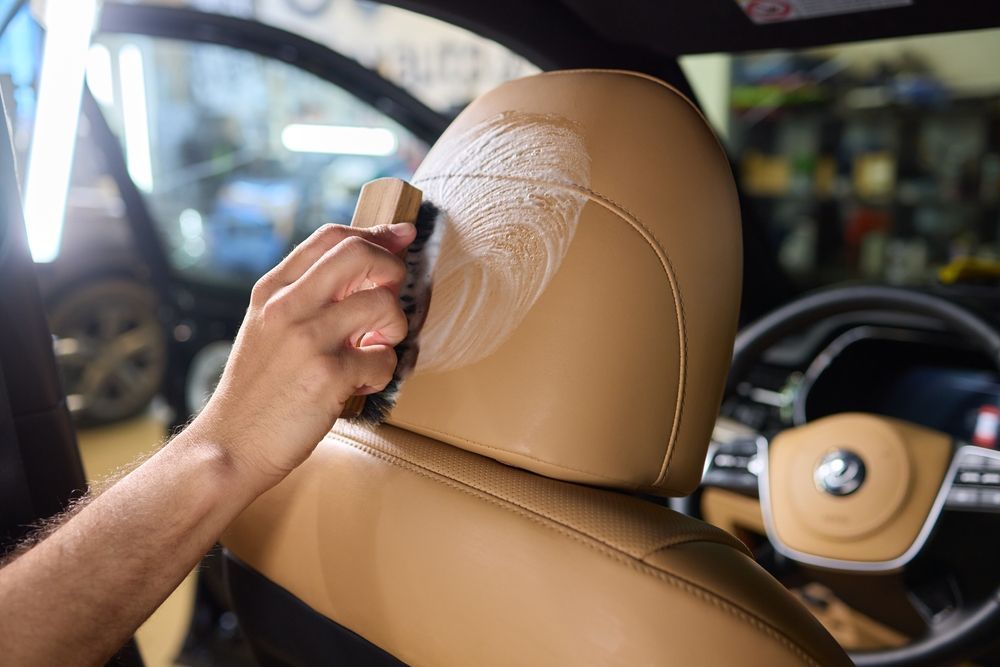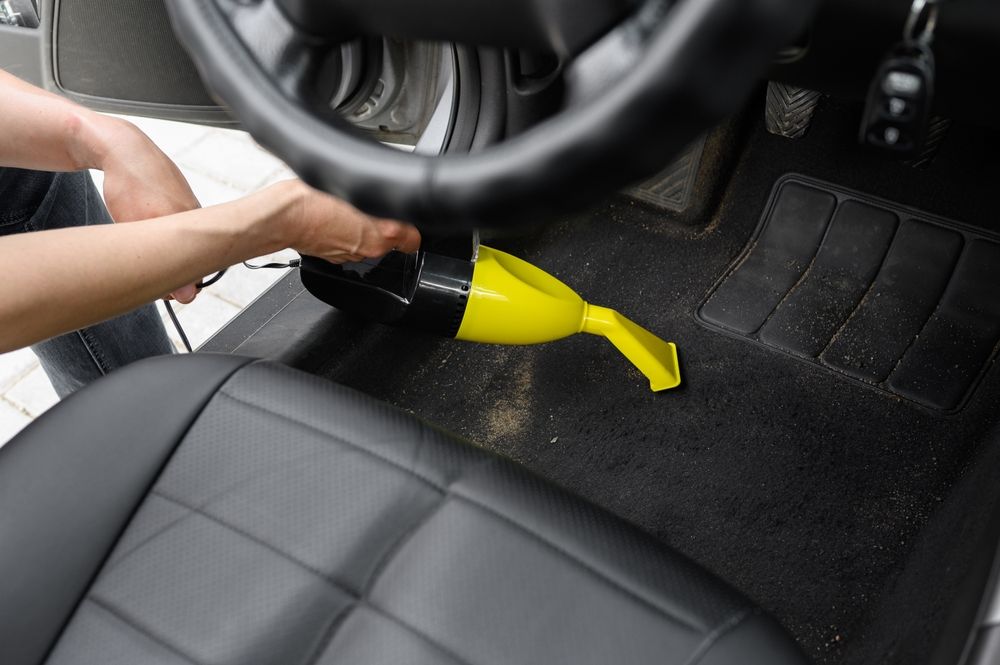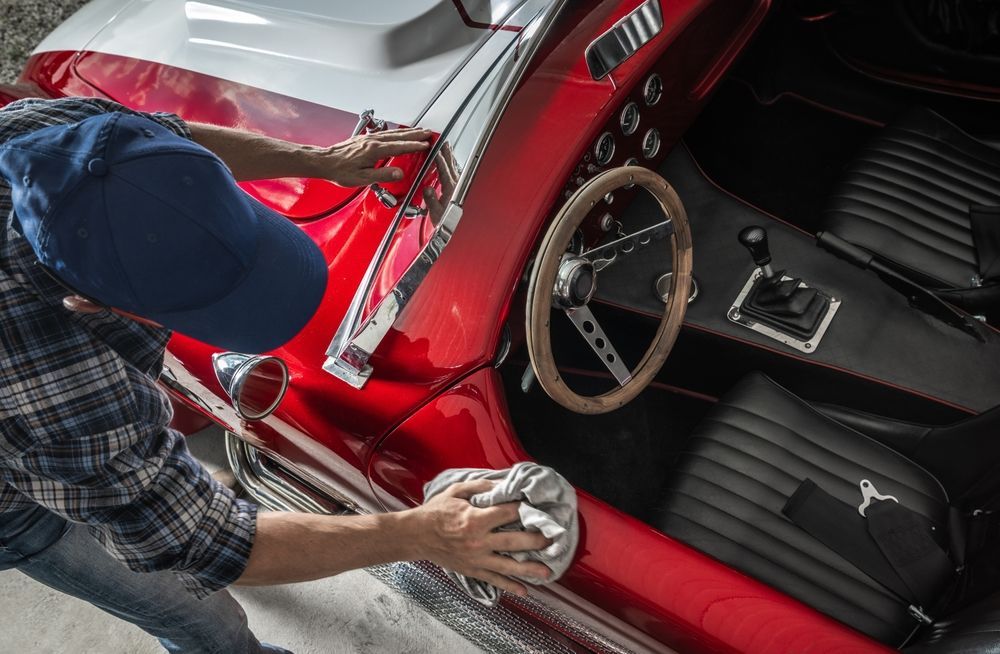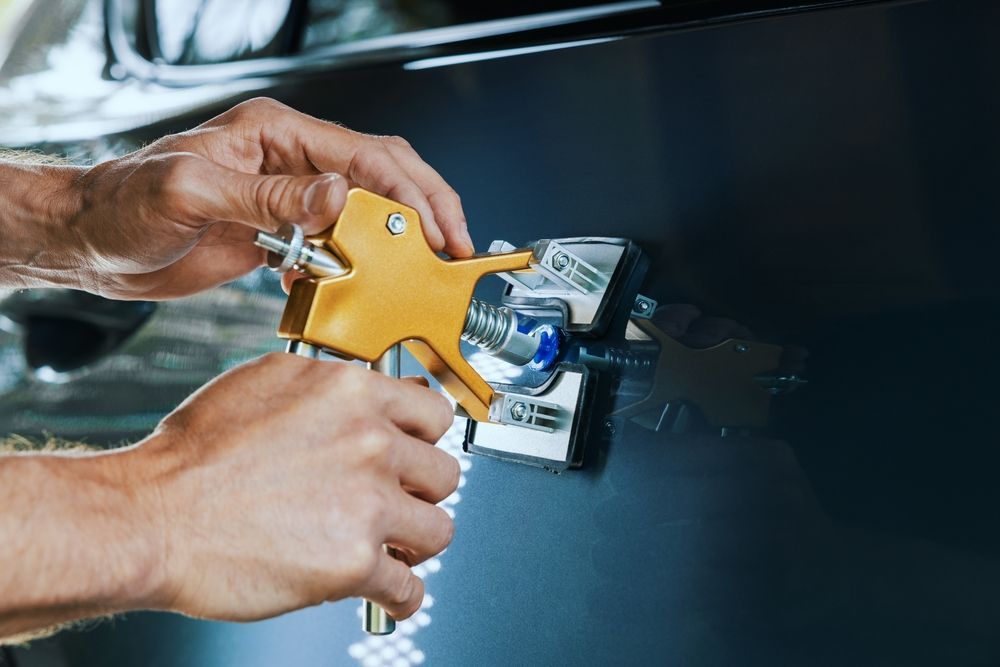
Whether your vehicle was damaged by hail during severe weather, involved in a collision, or took an errant shopping cart in the grocery store parking lot, things happen. While such incidents may not result in widespread damage, they can lead to dents and imperfections to the vehicle body. To ensure it stays looking great and maintains its value, it's only natural to want to repair any dents. DIY dent removal may be one solution.
Do dent pullers work? In some cases, yes. But they do have their limitations, especially when it comes to large dents or dents in hard-to-reach areas. In this post, we'll take a closer look at the popular types of DIY dent pullers, the methods that don't work, and when you should seek professional service. Read on to learn more:
What is a Dent Puller?
Simply put, a dent puller is a device that's used to remove, or lift, dents from a vehicle's body. These tools are designed to work on both metal and plastic and are intended to return any part of a vehicle's body to its pre-dent condition. There are various types of dent pullers, which we'll get into later on in this post.
Do They Really Work?
Yes, but they have their limitations. Dent pullers work best when it comes to removing small, shallow dents on smooth, flat exterior surfaces. Additionally, while some DIY dent repair tools can remove the dent, the surface finish may still not be perfect following removal. Unless you're having your vehicle serviced by a professional, it's unlikely to achieve a perfect finish. What's more is that if you're not careful or inexperienced, you could potentially make the dent even worse.
Instances Where They Do Not Work
Generally speaking, DIY dent pullers help improve your vehicle's appearance if you know how to use the tool properly. But as we alluded to in the previous section, they're not going to be an effective solution for some types of dents. Instances where DIY dent pullers will not work to remove dents include:
- If the dent is too big for a DIY puller.
- If the dent is in a location of the vehicle that's difficult to reach.
- If the dent has led to paint damage.
- If you don't know how to properly use the dent removal tool.
Different Methods of Dent Pulling
There are various types of dent-pulling tools, with some being more effective than others. Here's a closer look at the two most popular - and effective - types of dent pullers:
Suction/Plunger Dent Pulling
As the name implies, suction or plunger dent pullers use pressure to help remove dents from the vehicle's body. To use these tools, you'll need to dampen the area around the dent and then attach the suction device to cover the dented part of the vehicle. When the device is securely attached, you'll pull it straight up until the dent is removed.
It's important to use a specific suction or plunger dent removal tool. In other words, don't retrieve the plunger from your bathroom or from underneath your sink to attempt to perform dent removal.
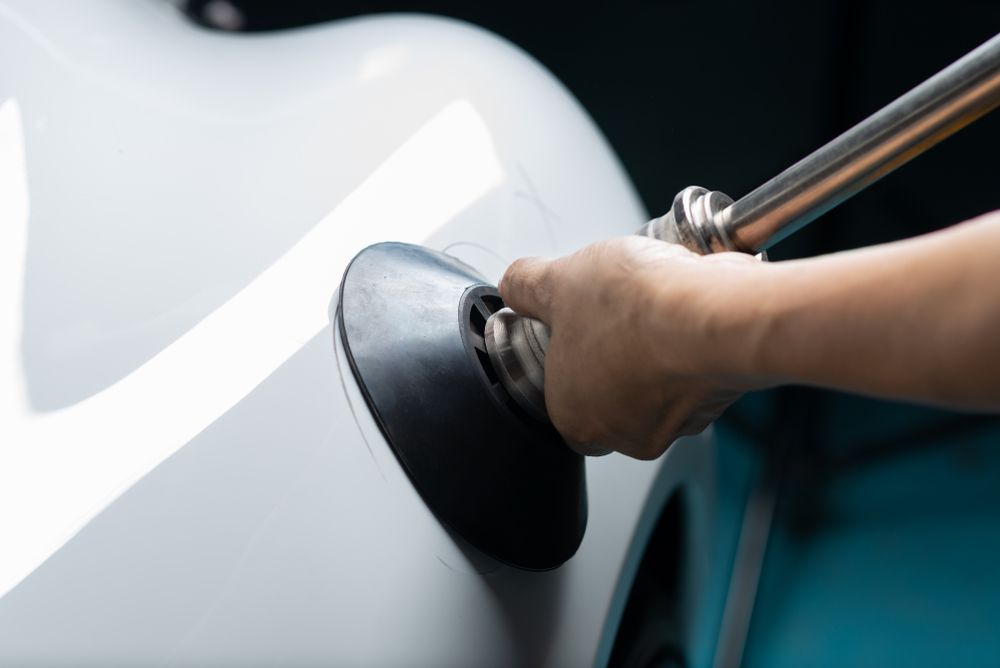
Glue-Based Dent Pulling
The other main method of DIY dent removal is via the use of a glue-based tool. These tools come with various-sized pulling tab attachments. To use these, heat the glue gun and apply glue to the bottom of the appropriate pulling tab, then press the tab against the dent so that the glue is pressing against the metal or plastic vehicle body. Let the glue dry for a few minutes, then attach the pulling device to the tab and pull the tab away from the vehicle. Just be sure not to pull the tab too far when you're removing the dent or else you could create raised areas on the vehicle body.
Methods That Will Not Work
While suction tools and glue-based devices can adequately remove small dents when used correctly, various tools and methods definitely will not work when it comes to dent removal. One of the most popular dent removal misconceptions is the thought that heat is an effective removal solution. Here's a closer look at why it's not an ideal solution:
Heat Application
Some think that using a hair dryer or heat gun to heat the dented metal or plastic area can help to reshape a vehicle panel. This couldn't be further from the truth. To reshape metal or plastic, the area would have to be heated to a significant temperature - something that few DIY tools can achieve. What's more is that attempts to reshape a vehicle's body by applying heat could even ruin the chemical composition and make the vehicle more susceptible to future damage.
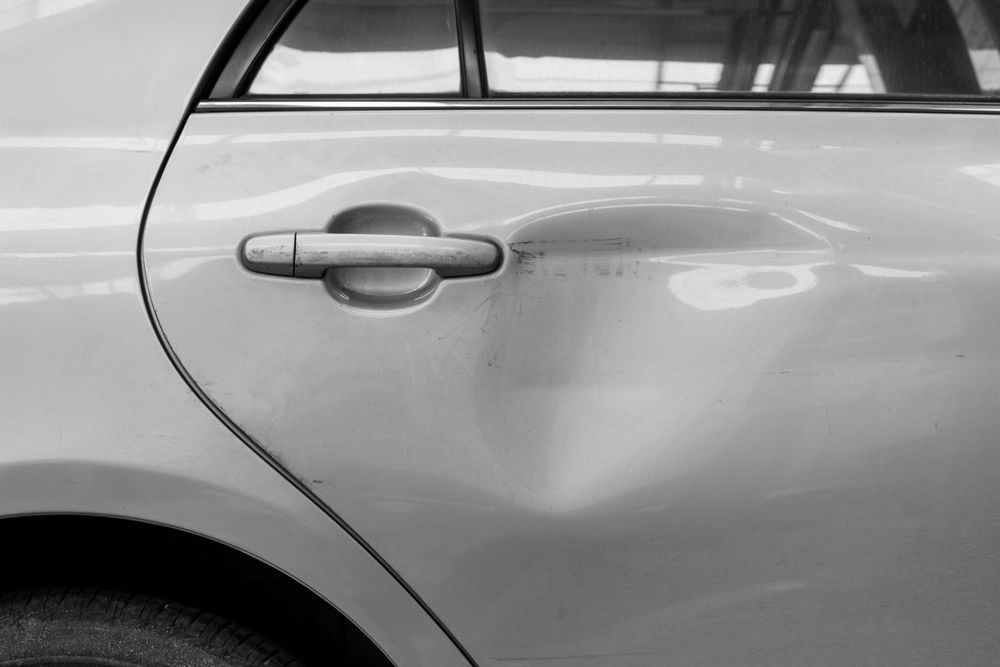
What You Should Do With Your Dent
So what should you do with your dent? If you're not confident in your ability to repair the dent using either the suction-based or glue-based tools we detailed above, or if the dent is too large or in a hard-to-reach area, you should seek professional service. Many professional body shops, including Wrecktify Collision, use a paintless dent repair method that adequately removes dents of various sizes without impacting the paint job. Here's a closer look at paintless dent repair and how it works:
Paintless Dent Repair
Paintless dent repair, or PDR, works by using special tools and devices to essentially "massage" the dents out of vehicle body. A preferred method to conventional dent repair methods, it tends to be affordable and fast, and it won't impact the paint job when it's done correctly.
Need an Auto Body Shop For Your Dent Repair?
For more information on dent pullers and to learn more about paintless dent repair,
contact Wrecktify Collision today. As experts in vehicle restoration, we have the experience and know-how to effectively remove any dent and return your vehicle to its pre-dent condition. Contact us today for more information.

207 Hoesly Drive, New Glarus, WI 53574
608.527.2246

